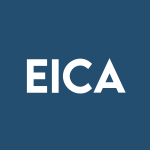Company Description
Overview
Eagle Point Income Company Inc (EICA) operates as a closed-end management investment company primarily focused on generating high current income. With a clear emphasis on both income generation and capital appreciation, the firm has strategically positioned itself within the investment management sector by specializing in junior debt tranches of collateralized loan obligations (CLOs). These CLOs are, in turn, collateralized by a diversified portfolio of below-investment grade U.S. senior secured loans, spanning a broad range of industry sectors.
Investment Strategy and Business Model
The core of EICA’s business model lies in its methodical approach to investment selection and portfolio diversification. The Company invests in junior tranches within CLOs, which offer exposure to higher-yield potential compared to senior positions, albeit with increased risk. Such a strategy allows the firm to target high current income while maintaining a secondary objective of capital appreciation. The diversification across numerous underlying borrowers helps mitigate the risks inherent in below-investment grade exposures. This investment structure is designed to provide stability through risk spreading while capitalizing on niche opportunities in the fixed income space.
Market Position and Significance
EICA occupies a distinct niche within the broader financial services industry. As a management investment company with a focus on alternative fixed income strategies, it stands apart from traditional equity and bond funds. The utilization of CLO structures places the company in a specialized segment of the market, catering to investors seeking yield enhancement in environments where standard fixed income assets may underperform. Its approach makes it a reference point for discussions on alternative income strategies, particularly for those interested in the dynamics of subordinate debt and structured credit markets.
Operational Mechanics and Portfolio Diversification
- Portfolio Construction: EICA constructs its portfolio by carefully selecting CLOs that are backed by a large number of distinct borrowers. This extensive diversification is crucial for reducing concentration risk across industries and borrower profiles.
- Risk Management: By investing in below-investment grade, U.S. senior secured loans, the company leverages the protective features of senior security while assuming the higher risk associated with junior tranches. This balance is indicative of a tailored risk management approach where risk is offset by the potential for enhanced yields.
- Revenue Generation: The company achieves its investment objectives through a blend of income generation from interest payments and the potential for capital gains as market conditions fluctuate within the CLO structure.
Expert Insights and Industry Terminology
Understanding EICA requires familiarity with key industry concepts. The term collateralized loan obligations (CLOs) refers to a type of structured credit product that aggregates a diversified pool of loans. In the context of EICA, the focus is on the junior tranches of these structures, which, while more vulnerable to first losses, potentially offer enhanced yield opportunities. Additionally, below-investment grade loans denote credit exposures that carry a higher risk of default but are compensated by higher interest returns, making them an attractive component of a diversified income strategy.
Industry Position and Comparative Analysis
EICA maintains a competitive edge through its specialized focus on alternative credit instruments. Unlike larger, more generalized investment entities, this company hones in on niche market segments and specific structured credit products. Its approach contrasts with traditional fixed income funds by embracing the complexities of subordinate debt and structured products, thereby addressing the needs of investors who prioritize yield enhancement and diversified income streams. The company's strategy, while inherently complex, is supported by thorough risk management and a disciplined investment process that underscores its expertise in this sector.
Investor Considerations and Analytical Viewpoints
For investors evaluating Eagle Point Income Company Inc, it is important to consider the intricacies of its investment strategy and the inherent risks that accompany exposure to junior debt instruments. The company’s commitment to portfolio diversification provides a buffer against sector-specific downturns, yet the nature of its investments demands a careful assessment of market cycles and credit risk. The structured approach and strategic asset allocation offer insights into a well-considered methodology that balances yield potential with capital preservation.
Conclusion
Eagle Point Income Company Inc exemplifies a focused and nuanced approach to investment management within the world of alternative credit strategies. By leveraging expertise in CLOs, junior debt tranches, and below-investment grade loans, the firm presents a sophisticated investment vehicle aimed at high current income and capital appreciation. The detailed operational structure, combined with a strong emphasis on risk management and diversification, positions EICA as a key study in the evolving landscape of fixed income and structured credit investments.

